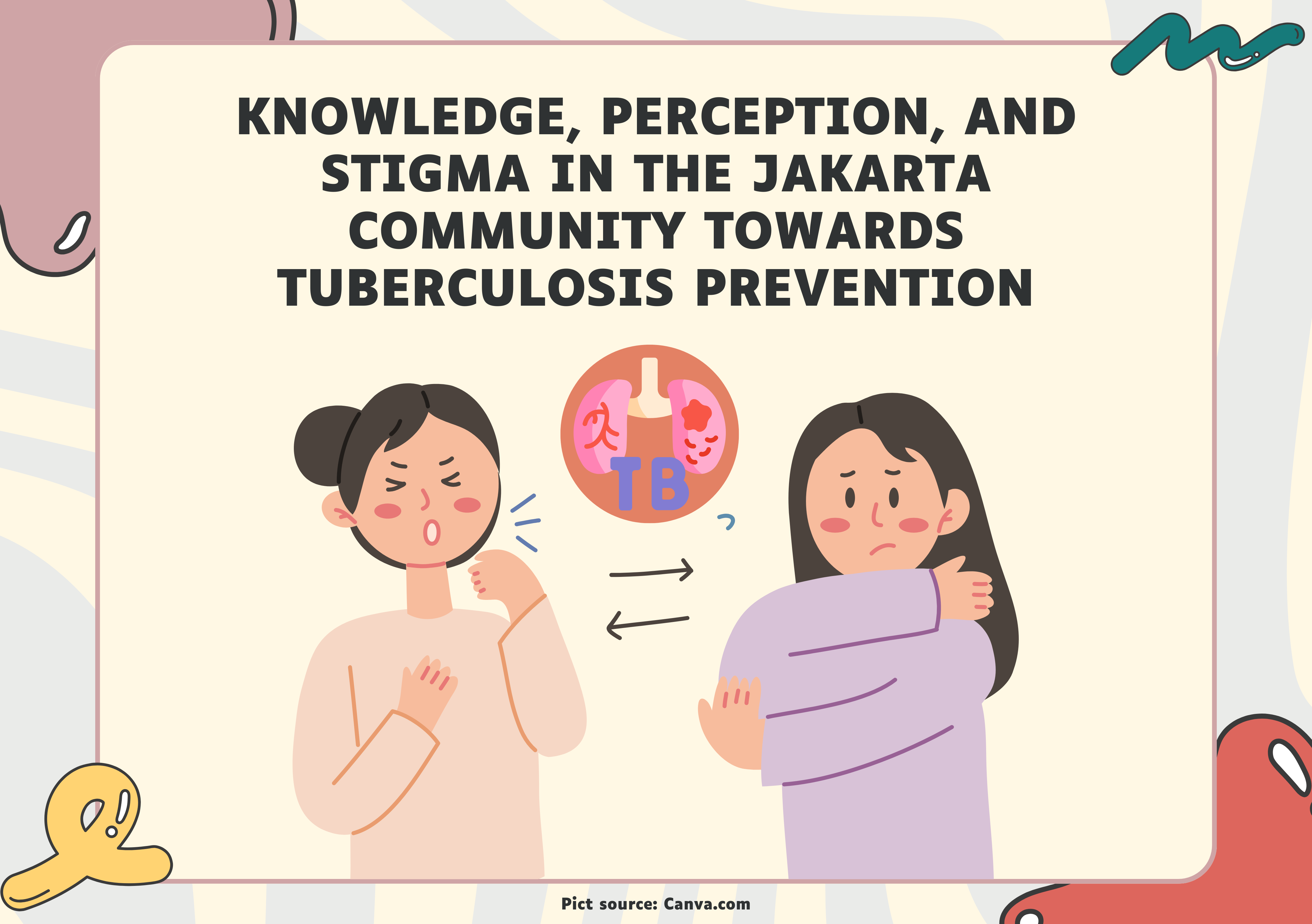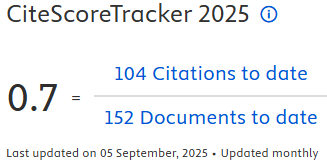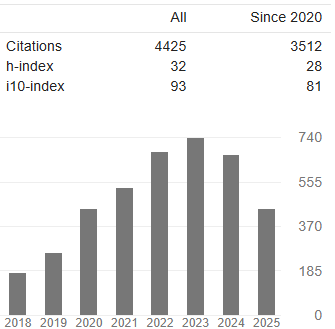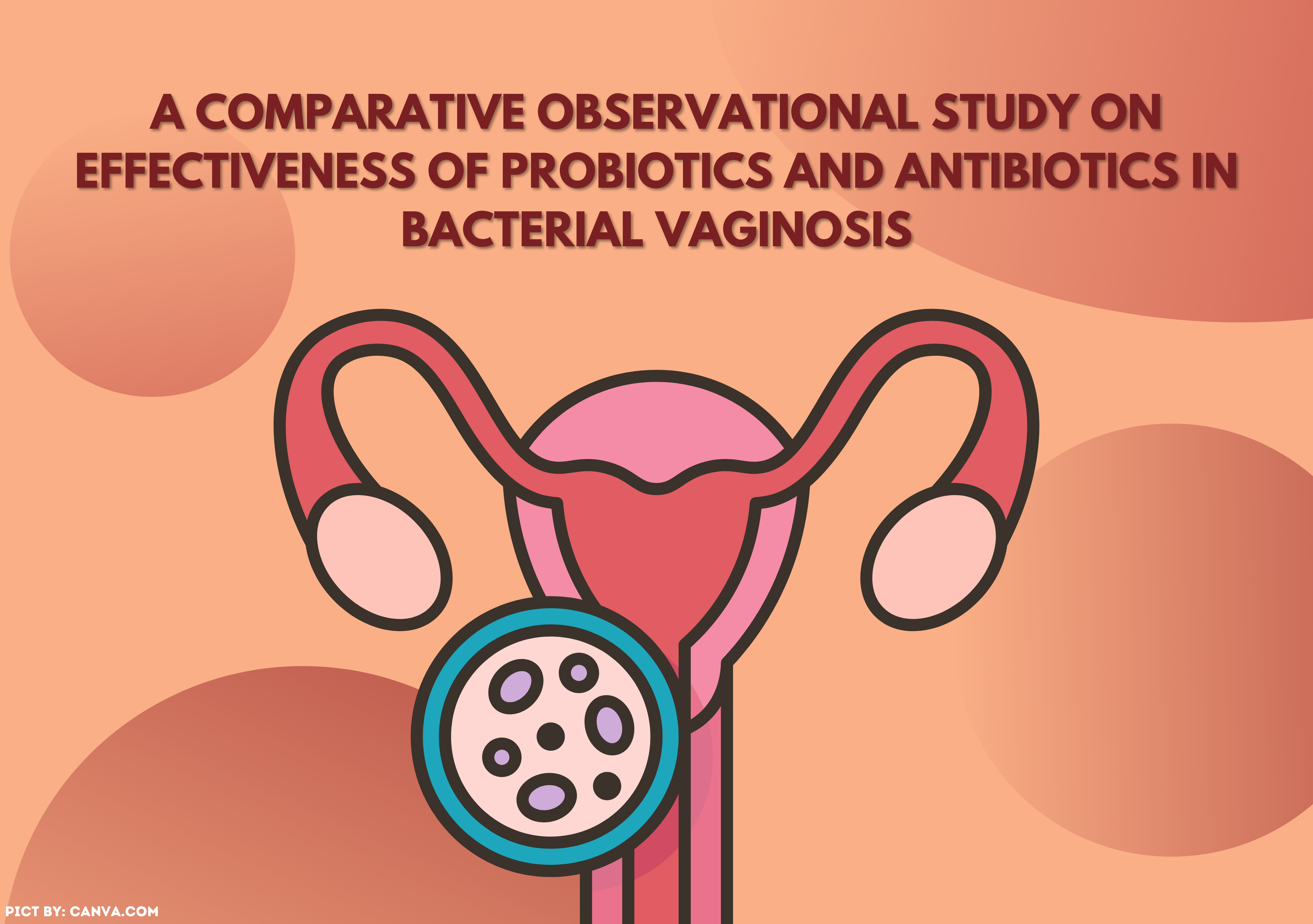KNOWLEDGE, PERCEPTION, AND STIGMA IN THE JAKARTA COMMUNITY TOWARD TUBERCULOSIS PREVENTION

Introduction: The Corona Virus Infectious Disease (COVID)-19 pandemic has impacted tuberculosis (TB) diagnosis and treatment in Indonesia, making Indonesia rank second in the world’s tuberculosis cases. Tuberculosis epidemiology worsened during the pandemic; an estimated 10.6 million people fell ill with tuberculosis worldwide in 2021, an increase of 4.5% from the previous year (Falzon et al., 2023). Aims: The purpose of this study was to determine the relationship between knowledge, perception, and stigma toward tuberculosis prevention in the community in Jakarta. Methods: Respondents in this study were selected using simple random sampling with the criteria at least 17 years of age and currently not diagnosed as a TB patient. Those who were diagnosed with active TB and were on treatment were excluded from the study. Using a cross-sectional design, this study was analyzed with logistic regression. Results: Two factors were found to be associated with the level of tuberculosis prevention behavior. Respondents with better knowledge about tuberculosis were 5.13 times more likely to make good prevention in tuberculosis (OR=5.129; 95% CI=2.341-11.238; p-value <0.001). In addition, having a positive perception of tuberculosis prevention was also associated with better tuberculosis prevention practices (OR=3.301; 95% CI=1.402-7.772; p-value=0.006). Conclusion: Knowledge and perceptions can also eventually lead to stigma, which results in delayed diagnosis, increases the source of transmission, and hinders efforts to reduce its prevalence. A possible recommendation is to educate the community about TB transmission, treatment, and prevention to dispel myths and negative perceptions.
Amallia, A., Kusumawati, A., & Prabamurti, P. N. (2021). Perilaku Masyarakat dalam Pencegahan Tuberkulosis di Wilayah Kerja Puskesmas Manyaran Kota Semarang. Media Kesehatan Masyarakat Indonesia, 20(5), 317–326. https://doi.org/10.14710/mkmi.20.5.317-326
Asfiya, N. A., Prabamurti, P. N., & Kusumawati, A. (2021). Faktor yang Berhubungan dengan Praktik PHBS Pencegahan TB Paru pada Santri di Kabupaten Tegal (Studi di Pondok Pesantren Attholibiyah Bumijawa). Media Kesehatan Masyarakat Indonesia, 20(6), 379–388. https://doi.org/10.14710/mkmi.20.6.379-388
Badane, A. A., Dedefo, M. G., Genamo, E. S., & Bekele, N. A. (2018). Knowledge and Healthcare Seeking Behavior of Tuberculosis Patients attending Gimbi General Hospital, West Ethiopia. Ethiopian Journal of Health Sciences, 28(5), 529–538. https://doi.org/10.4314/ejhs.v28i5.3
Chung, C., Jeong, D., Sohn, H., Choi, H., & Kang, Y. A. (2024). Low household income increases the risk of tuberculosis recurrence: a retrospective nationwide cohort study in South Korea. Public Health, 226, 228–236. https://doi.org/10.1016/j.puhe.2023.11.014
Craciun, O. M., Torres, M. D. R., Llanes, A. B., & Romay-Barja, M. (2023). Tuberculosis Knowledge, Attitudes, and Practice in Middle- and Low-Income Countries: A Systematic Review. Journal of Tropical Medicine, 2023. https://doi.org/10.1155/2023/1014666
Cremers, A. L., Laat, M. M. de, Kapata, N., Gerrets, R., Klipstein-Grobusch, K., & Grobusch, M. P. (2015). Assesing the Concequences of Stigma for Tuberculosis Patients in Urban Zambia. 2015, 1–239. https://doi.org/10.1371/journal.pone.0119861
Cumayunaro, A., & Hidayati, R. (2020). Tingkat Pengetahuan Keluarga Dengan Pencegahan Penularan Tuberkulosis Paru Pada Keluarga Diwilayah Kerja Puskesmas Andalas Padang. Journal of Social and Economics Research, 2(1), 031–040. https://doi.org/10.54783/jser.v2i1.13
Falzon, D., Zignol, M., Bastard, M., Floyd, K., & Kasaeva, T. (2023). The impact of the COVID-19 pandemic on the global tuberculosis epidemic. Frontiers in Immunology, 14(August), 1–5. https://doi.org/10.3389/fimmu.2023.1234785
Gelaye, K. A., Debalkie, G., Ayele, T. A., Wami, S. D., Sisay, M. M., Fetene, D., Wolde, H. F., & Akalu, T. Y. (2020). The role of mass media exposure on tuberculosis knowledge and attitude among migrant and seasonal farmworkers in Northwest Ethiopia. BMC Infectious Diseases, 20(1), 1–10. https://doi.org/10.1186/s12879-020-05316-9
Hariadi, E., Buston, E., Nugroho, N., & Efendi, P. (2022). Stigma Masyarakat terhadap Penyakit Tuberkulosis dengan Penemuan Kasus Tuberkulosis BTA Positif di Kota Bengkulu tahun 2022. Journal of Nursing and Public Health, 11(1), 43–50. https://doi.org/10.14341/CBAI-2022-65
Hossain, S., Zaman, K., Quaiyum, A., Banu, S., Husain, A., Islam, A., Borgdorff, M., & van Leth, F. (2015). Factors associated with poor knowledge among adults on tuberculosis in Bangladesh: Results from a nationwide survey. Journal of Health, Population and Nutrition, 34(1), 1–7. https://doi.org/10.1186/s41043-015-0002-4
Junaid, S.A.,Kanma-Okafor,OJ., Olufunlayo, T.F., Odugbemi, B.A., & Ozoh, O.B. (2021). Tuberculosis stigma: Assessing tuberculosis knowledge, attitude and preventive practices in surulere, Lagos, Nigeria. Annals of African Medicine, 20(3), 148–192. https://doi.org/10.4103/aam.aam_40_20
Kazaura, M., & Kamazima, S. R. (2021). Knowledge, attitudes and practices on tuberculosis infection prevention and associated factors among rural and urban adults in northeast Tanzania: A cross-sectional study. PLOS Global Public Health, 1(12), e0000104. https://doi.org/10.1371/journal.pgph.0000104
Loh, S. Y., Zakaria, R., & Mohamad, N. (2023). Knowledge, Attitude, and Stigma on Tuberculosis and the Associated Factors for Attitude Among Tuberculosis Contacts in Malaysia. Medeniyet Medical Journal, 38(1), 45–53. https://doi.org/10.4274/MMJ.galenos.2023.14478
Luba, T. R., Tang, S., Liu, Q., Gebremedhin, S. A., Kisasi, M. D., & Feng, Z. (2019). Knowledge, attitude and associated factors towards tuberculosis in Lesotho: A population based study. BMC Infectious Diseases, 19(1), 1–10. https://doi.org/10.1186/s12879-019-3688-x
Mahmud, S., Mohsin, M., Irfan, S. H., Muyeed, A., & Islam, A. (2022). Knowledge, attitude, practices, and determinants of them toward tuberculosis among social media users in Bangladesh: A cross-sectional study. PLoS ONE, 17(10 October), 1–19. https://doi.org/10.1371/journal.pone.0275344
Nasution, J. D., Yustina, I., Sudaryati, E., & Rochad, R. K. (2023). Family-Based Prevention of Pulmonary Tuberculosis Transmission In Deli Serdang District North Sumatra. Journal of Population Therapeutics and Clinical Pharmacology, 30(6), 344–355. https://doi.org/10.47750/jptcp.2023.30.06.039
Nusawakan, A. W., Tesabela Messakh, S., & Jambormias, S. (2019). Faktor Yang Mempengaruhi Pengambilan Keputusan Dalam Penggunaan Layanan Kesehatan Pada Wilayah Kerja Puskesmas Tawiri. Media Ilmu Kesehatan, 6(2), 129–138. https://doi.org/10.30989/mik.v6i2.188
Parwati, N. M., Bakta, I. M., Januraga, P. P., & Wirawan, I. M. A. (2021). A health belief model-based motivational interviewing for medication adherence and treatment success in pulmonary tuberculosis patients. International Journal of Environmental Research and Public Health, 18(24). https://doi.org/10.3390/ijerph182413238
Puspitasari, I. M., Sinuraya, R. K., Aminudin, A. N., & Kamilah, R. R. (2022). Knowledge, Attitudes, and Preventative Behavior Toward Tuberculosis in University Students in Indonesia. Infection and Drug Resistance, 15(August), 4721–4733. https://doi.org/10.2147/IDR.S365852
Raghupathi, V., & Raghupathi, W. (2020). The influence of education on health: An empirical assessment of OECD countries for the period 1995-2015. Archives of Public Health, 78(1), 1–18. https://doi.org/10.1186/s13690-020-00402-5
Rahmawati, A., Utomo, B., Makhfudli, M., Wulandari, S. M., & Abdullah, K. L. (2024). Peer group support and motivational interviewing interventions impact parents’ behavior in preventing tuberculosis among children. The Journal of Palembang Nursing Studies, 3, 5–13. https://doi.org/10.55048/jpns101
Rizqiya, R. N. (2021). Hubungan Stigma Masyarakat Dengan Kepatuhan Minum Obat Pasien Tb Paru Di Puskesmas Puhjarak Kecamatan Plemahan Kabupaten Kediri. Jurnal Ilmiah Kesehatan Keperawatan, 17(1), 66. https://doi.org/10.26753/jikk.v17i1.511
Rosenstock, I. M., Strecher, V. J., & Becker, M. H. (1988). Social Learning Theory and the Health Belief Model. Health Education & Behavior, 15(2), 175–183. https://doi.org/10.1177/109019818801500203
Sandha, L. M. H., & Sari, K. A. K. (2017). Tingkat Pengetahuan dan Kategori Persepsi Masyarakat Terhadap Penyakit Tuberkulosis (TB) di Desa Kecicang Islam Kecamatan Bebandem Karangasem-Bali. E-Jurnal Medika Udayana, 6(12), 131–139.
Siregar, S., & Tampubolon, V. S. (2018). Gambaran Status Gizi Terhadap Kejadian Tb Paru Di Rumah Sakit Imelda Medan Tahun 2018. Jurnal Ilmiah Keperawatan Imelda, 4(2), 111–115. https://doi.org/10.52943/jikeperawatan.v4i2.292
Yin, X., Yan, S., Tong, Y., Peng, X., Yang, T., Lu, Z., & Gong, Y. (2018). Status of tuberculosis-related stigma and associated factors: a cross-sectional study in central China. Tropical Medicine & International Health, 23(2), 199–205. https://doi.org/10.1111/tmi.13017
Yulianti, T. R., Sabila, A. A., Farha, B. M., Renhoran, C. R., Putri, C. N., Aini, D. R. N., Hasnanisa, N., Ashari, P., Umari, Q. M., Hakiki, R. N., Hasana, W. P., Makful, M. R., & Pohan, T. F. (2022). Pencegahan dan Pengendalian Tuberkulosis di Jabar. Jurnal Pengabdian Kesehatan Masyarakat: Pengmaskesmas, 2(1), 68–81.
Copyright (c) 2024 The Indonesian Journal of Public Health

This work is licensed under a Creative Commons Attribution-NonCommercial-ShareAlike 4.0 International License.
- The authors agree to transfer the transfer copyright of the article to The Indonesian Journal of Public Health effective if and when the paper is accepted for publication.
- Authors and other parties are bound to the Creative Commons Attribution-NonCommercial-ShareAlike 4.0 International License for the published articles, legal formal aspect of journal publication accessibility refers to Creative Commons Attribution-NonCommercial-ShareAlike 4.0 International License (CC BY-NC-SA), implies that:
- Attribution ” You must give appropriate credit, provide a link to the license, and indicate if changes were made. You may do so in any reasonable manner, but not in any way that suggests the licensor endorses you or your use.
- NonCommercial ” You may not use the material for commercial purposes.
- ShareAlike ” If you remix, transform, or build upon the material, you must distribute your contributions under the same license as the original.































